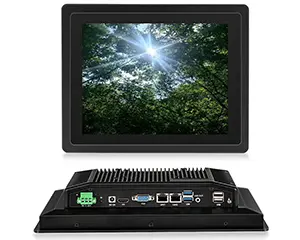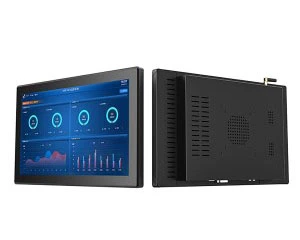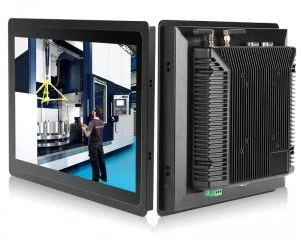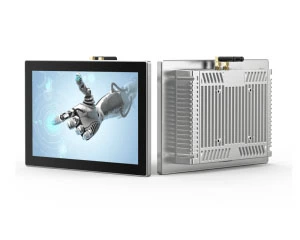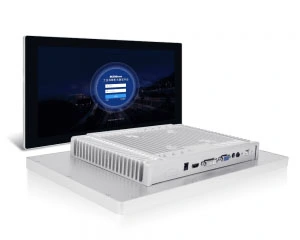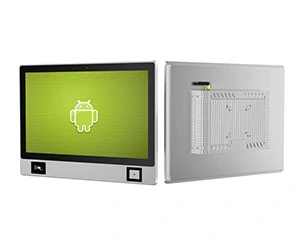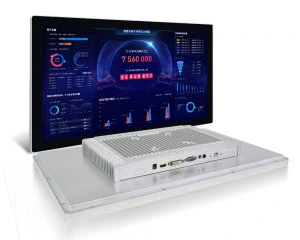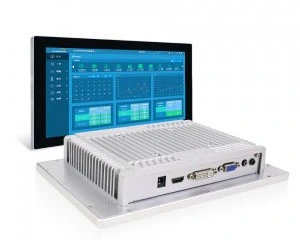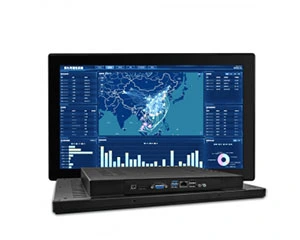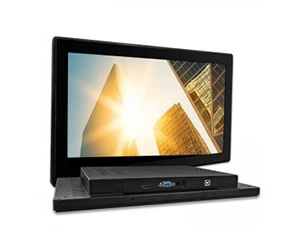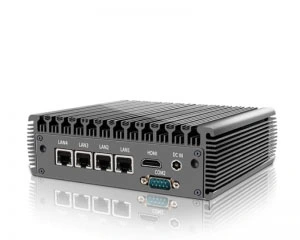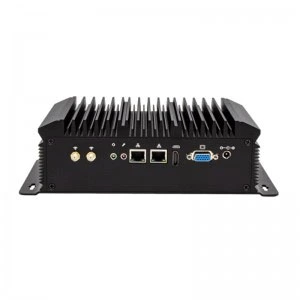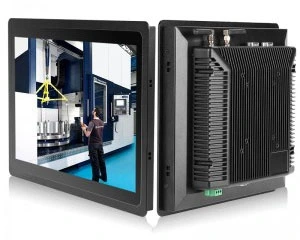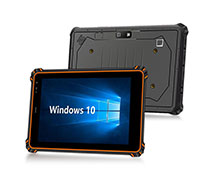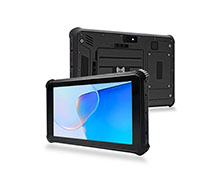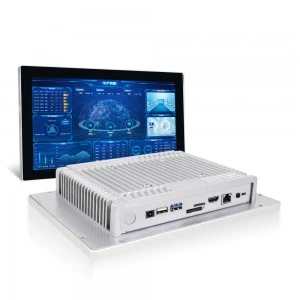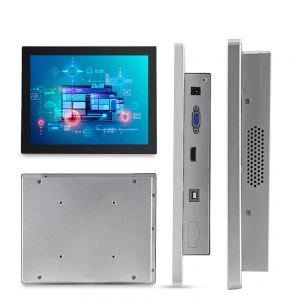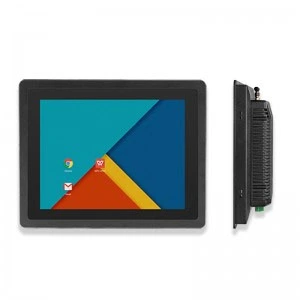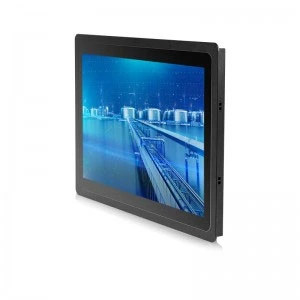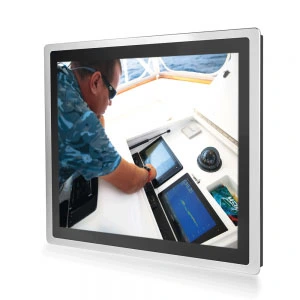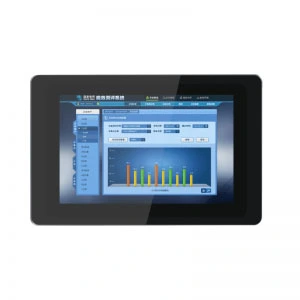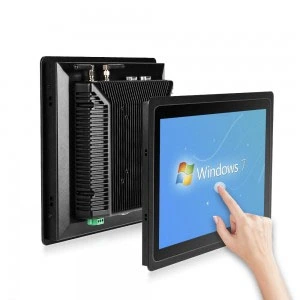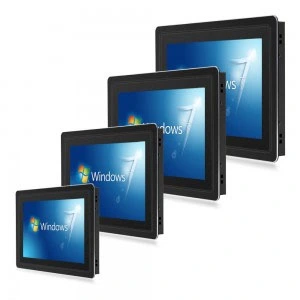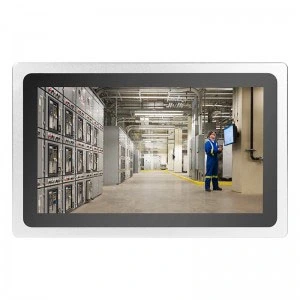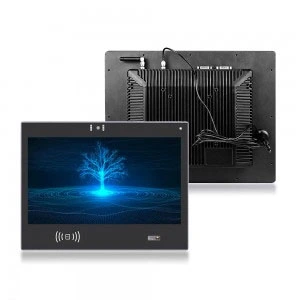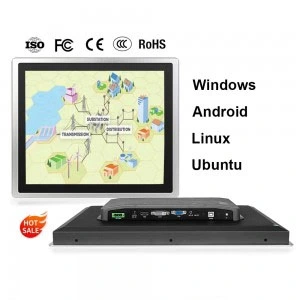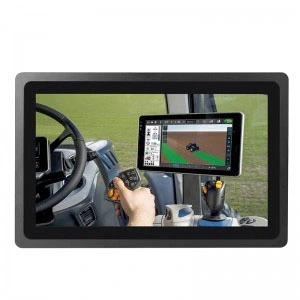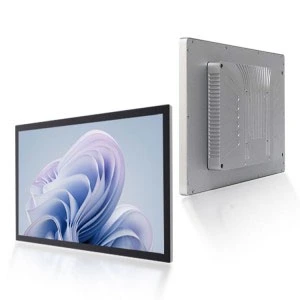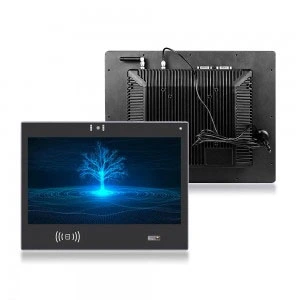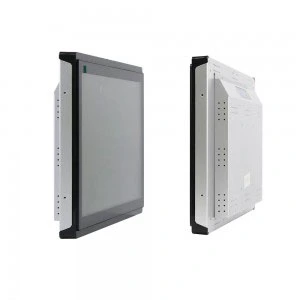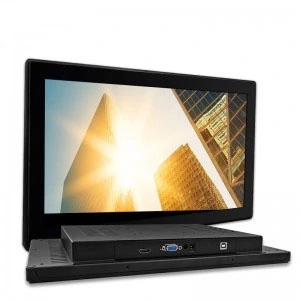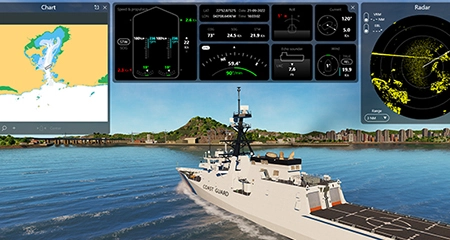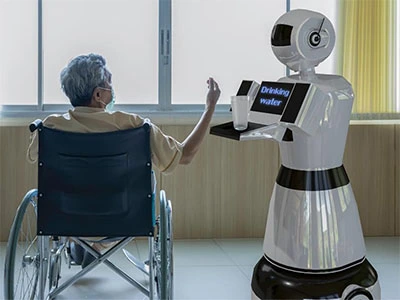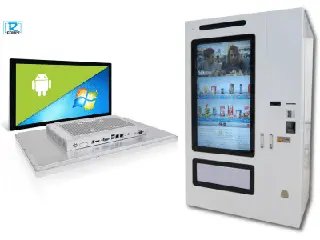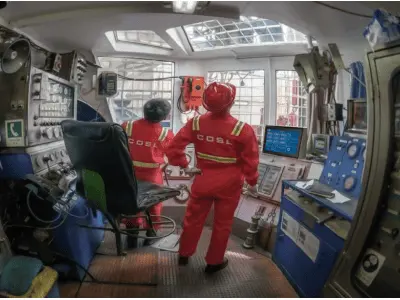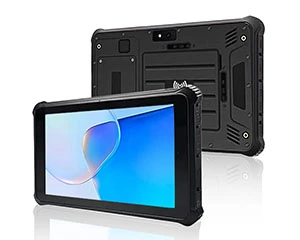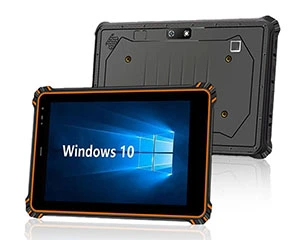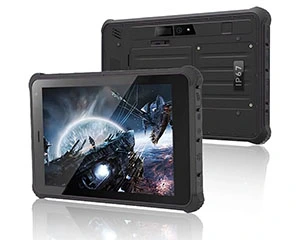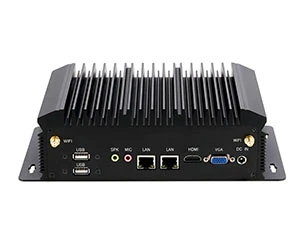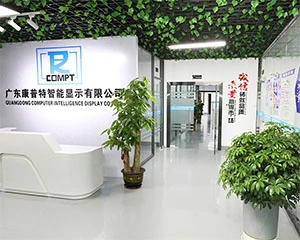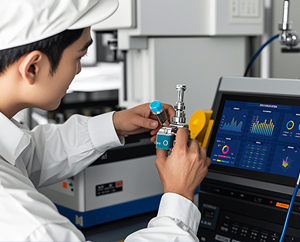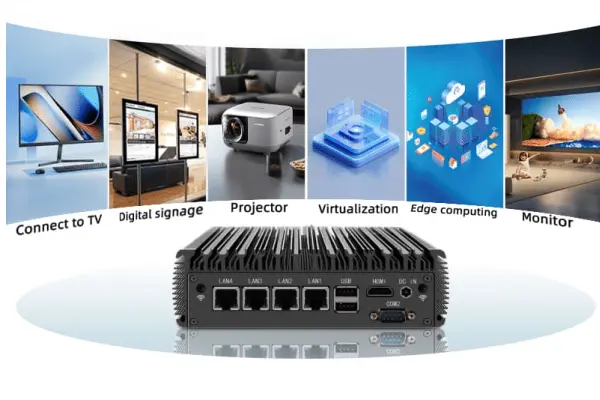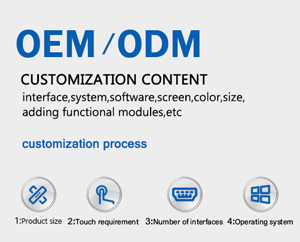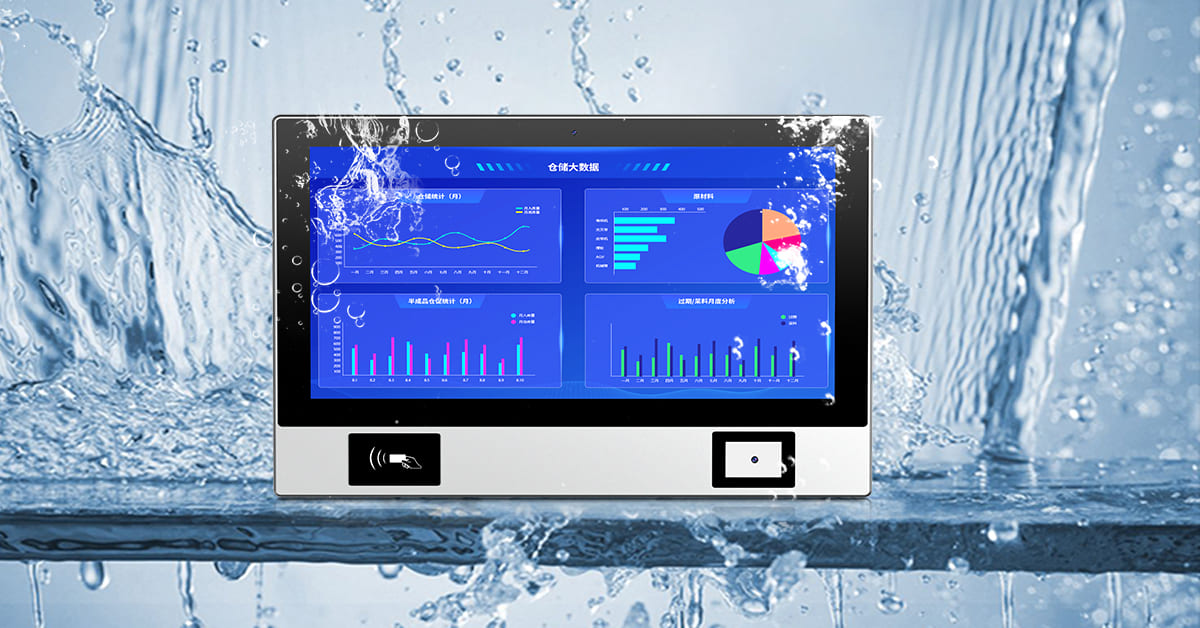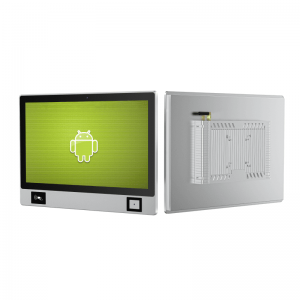Overview of MES Terminal
The MES terminal serves as a pivotal component in the Manufacturing Execution System (MES), specializing in communication and data management within production environments. Acting as a bridge, it seamlessly connects machines, equipment, and operators on the production floor, ensuring the instantaneous flow and processing of production information. The MES terminal not only facilitates smooth communication between complex devices but also provides operators with an intuitive interface for easily viewing and controlling production data.
With the MES terminal, operators can maintain real-time visibility into production status and exert precise control, such as halting production or issuing new instructions. This real-time interactivity positions the MES terminal as an indispensable tool for optimizing production processes and enhancing efficiency. In short, the MES terminal is an indispensable smart assistant in modern manufacturing, empowering enterprises to achieve efficient and precise production management.
Comprehensive Functions of MES Terminal
The MES Terminal, a vital component within the Manufacturing Execution System (MES), offers a wide range of functionalities that streamline and enhance production processes. Below is a comprehensive summary of its key functions, consolidating the overlapping points and integrating the unique aspects from the given descriptions.
1. Real-Time Data Exchange & Communication
The MES Terminal facilitates real-time data exchange during production, enabling operators to promptly access essential production data. This robust data platform allows for seamless interaction with machines, enabling operators to stop production, adjust parameters, or issue new commands instantly.
2. Production Control
Operators leverage the MES Terminal to exercise control over production equipment, executing actions such as pausing, starting, or fine-tuning production parameters. This direct control capability ensures that production operations adhere to predetermined standards and can be swiftly adjusted as needed.
3. Production Scheduling & Tracking
The MES Terminal supports advanced production scheduling, optimizing resource allocation to ensure smooth execution of production plans. Additionally, it tracks order progress, providing detailed status information on various tasks within the production floor. This functionality empowers managers to maintain a clear understanding of production progress and optimize scheduling accordingly.
4. Quality Management
Central to the MES Terminal’s role is its ability to maintain product quality. By monitoring key quality parameters throughout the production process, it enables the timely detection and correction of deviations, ensuring that products consistently meet or exceed established quality standards.
5. Resource Allocation & Efficiency Enhancement
The MES Terminal further contributes to production efficiency by optimizing the allocation of human, equipment, and material resources. By ensuring that resources are utilized effectively, it helps to elevate overall production output and reduce waste, thereby enhancing the profitability of manufacturing operations.
The MES Terminal serves as a multifaceted tool that revolutionizes production processes through real-time data exchange, precise production control, optimized scheduling, rigorous quality management, and efficient resource allocation. Its integration into modern manufacturing systems is crucial for achieving higher levels of productivity, quality, and profitability.
Advantages of MES Terminal
Durability: The MES Terminal boasts a rugged design, equipped with resistance to dirt, dust, mechanical shock, moisture, water, high and low temperatures, as well as vibrations. This makes it ideally suited for harsh industrial environments, ensuring reliability and longevity in demanding production settings.
Increased Productivity: Through real-time monitoring and precise control, the MES Terminal significantly reduces production errors, leading to an overall enhancement in production efficiency. This improved accuracy and responsiveness enable businesses to achieve higher output levels and optimize resource utilization.
Enhanced Collaboration: Serving as a centralized platform, the MES Terminal fosters collaboration among different departments. It simplifies production processes, breaking down communication barriers and streamlining workflows. This enhanced collaboration results in better decision-making and improved overall operational efficiency for the enterprise.
Real-Time Visibility: By providing real-time visibility into the production process, the MES Terminal enables operators and managers to quickly respond to market changes and make more informed decisions. This agility allows companies to adapt to shifting demands and capitalize on emerging opportunities, ultimately leading to improved customer satisfaction and market competitiveness.
Seamless Integration: The MES Terminal seamlessly integrates with other manufacturing systems, such as ERP (Enterprise Resource Planning) and SCM (Supply Chain Management). This integration creates a cohesive and efficient production environment, ensuring that all systems are working in harmony to optimize processes, reduce costs, and enhance productivity. The result is a streamlined manufacturing operation that is poised for success in today’s fast-paced business landscape.
Design and form of MES terminal
MES Terminals are state-of-the-art devices specifically engineered for industrial production environments. They feature large and rugged touch screen interfaces that offer excellent operability and readability, ensuring seamless task execution and real-time data access even in complex and challenging production sites.
The user interfaces are meticulously designed for ultimate user-friendliness and simplicity, ensuring that MES Terminals maintain stable and efficient performance even under high-intensity workloads. Moreover, these terminals are equipped with various protective features such as dust-proof and shock-resistant capabilities, ensuring reliable operation within the harsh industrial environments, thereby providing a solid foundation for streamlining production processes across enterprises.
Relationship between MES terminal and MES system
MES terminal is the front-end equipment for data acquisition and operation control in MES system. It serves as a communication bridge connecting the manufacturing execution system and production equipment to ensure the smooth transmission of data between the operation layer and the execution layer. the MES system mainly realises real-time monitoring of equipment, tracking of production status, quality control and optimal allocation of resources through the MES terminal. Therefore, MES terminal plays an indispensable role in the whole MES system.
Key Features and Advantages of MES TerminalReal-time visibility
MES terminals provide operators with real-time visualisation of the production process so that managers can check the production status at any time and make quick responses.
Resistance to harsh environments: Compared with other data collection devices, the MES terminal is particularly suitable for use in industrial environments and has excellent durability and reliability. It is able to withstand harsh working environments such as resistance to dirt, dust, water and moisture, high and low temperatures, as well as mechanical shocks and vibrations.
Collaboration: Through the MES terminal, production data can circulate between different departments, promoting cross-departmental collaboration and streamlining the overall production process.
Applications and Practical Benefits of MES Terminals
- Increased Production Efficiency: With MES Terminals, operators can reduce human errors in production, enhance work efficiency, and achieve rational allocation of resources.
- Quality Management: MES Terminals assist factories in monitoring product quality throughout the production process, ensuring that every stage adheres to established quality standards.
- Resource Optimization: MES Terminals optimize the distribution of human, equipment, and material resources, minimizing waste and enhancing overall factory production efficiency.
- Rapid Response to Issues: Real-time monitoring of production processes enables operators to swiftly identify problems and implement corresponding solutions, thereby reducing downtime.
FAQs
- Integration with Other Systems: How does an MES Terminal integrate with other manufacturing systems? MES Terminals leverage standardized interfaces and protocols to seamlessly integrate with other manufacturing systems (such as ERP, SCM, etc.), facilitating seamless data exchange and sharing.
- Contribution to Quality Control: By monitoring and recording quality parameters, MES Terminals ensure that every step of the production process adheres to quality standards. In case of quality deviations, the system alerts operators to make timely adjustments, preventing substandard products from proceeding to the next production stage.
Summary
MES Terminals play an indispensable role in modern manufacturing. Through their robust capabilities in data acquisition, real-time monitoring, quality management, and resource optimization, they empower factories to enhance production efficiency, minimize production errors, and guarantee product quality. As a vital component of Industry 4.0, the application of MES Terminals significantly enhances the agility and sustainability of manufacturing systems.

Penny
Web Content Writer
4 years of experience
This article is edited by Penny, the website content writer of COMPT, who has 4 years working experience in the industrial PCs industry and often discusses with colleagues in R&D, marketing and production departments about the professional knowledge and application of industrial controllers, and has a deep understanding of the industry and products.
Please feel free to contact me to discuss more about industrial controllers. sales@gdcompt.com

